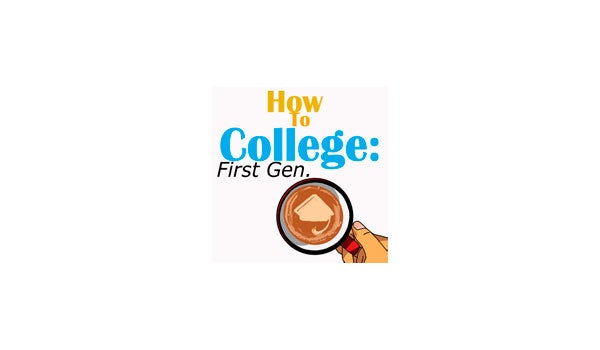When COVID-19 hit Houston, a group of Rice alumni decided to use their downtime to make a difference in the community.
Norma Torres Mendoza ’13, Joseph Mapula ’15, Luz Rocha ’14 and MiJin Han ’16, got together and created a podcast to make higher education information more accessible to first-generation college students. The “How to College: First Gen” podcast also provides information about career development and shares lessons about being a first-generation college student.
Since the pandemic began, the team has been meeting online every weekend to decide a course of action. With schools closed and no access to college counselors, they determined that this was an ideal challenge to address. Their market research indicated that although there were one or two college readiness podcasts led by professionals at colleges or universities, there were none for first-generation students.
They identified podcasts as the most viable method for delivering the information because it works for people on the go. Podcasts, they said, can be accessed on smartphones as well as desktops, through Apple, Spotify and Google. Podcasts are superior to reading information from a book because listeners can hear the thoughts and emotions in the voices of real people.
Roxana Rivera, a Middlebury College alum, is a first gen and podcast listener and agrees with the podcast’s developers.
“My favorite episode so far is the first episode of the ‘Imposter Syndrome’ series because of how much I can relate to it. I can sincerely say that this episode helped me understand the many experiences and feelings I went through throughout my education, especially in high school. I never really knew how to explain how I felt or even why I felt the way I did. I felt like I did not belong in a rigorous education setting or was not worthy enough, until I listened to this episode.”
“The podcast’s target audiences range from high school students to first-generation college students to graduates to parents of first gens who want to know more about how to prepare their children for college,” said Han.
About 800 people have tuned in to the podcast so far. The highest percentage of listeners range from 18 to 30 years of age, though the hope is to attract more listeners under the age of 17, because those are the ones currently applying to college. Listeners hail from as far away as Ireland and South Africa though most reside in Texas and California.
Moving forward, the podcast creators want to expand the program by providing more episodes, but to do that they will need more volunteers. The podcast creators all have full-time jobs and are in dire need of help to produce the segments. They also want to ramp up marketing for the program to high school students and provide stipends for their interns. Also, the group will be filing for a nonprofit status to raise funds and keep up with the demands.
“The demand for the podcast is beyond our imagination,” said Mendoza. “We’ve had more than 800 plays already, which is incredible. We know now more than ever that it is crucial for first-generation college students to not feel alone in their educational journey.”
— Jan F. West
Assistant Director
Multicultural Community Relations
Public Affairs

